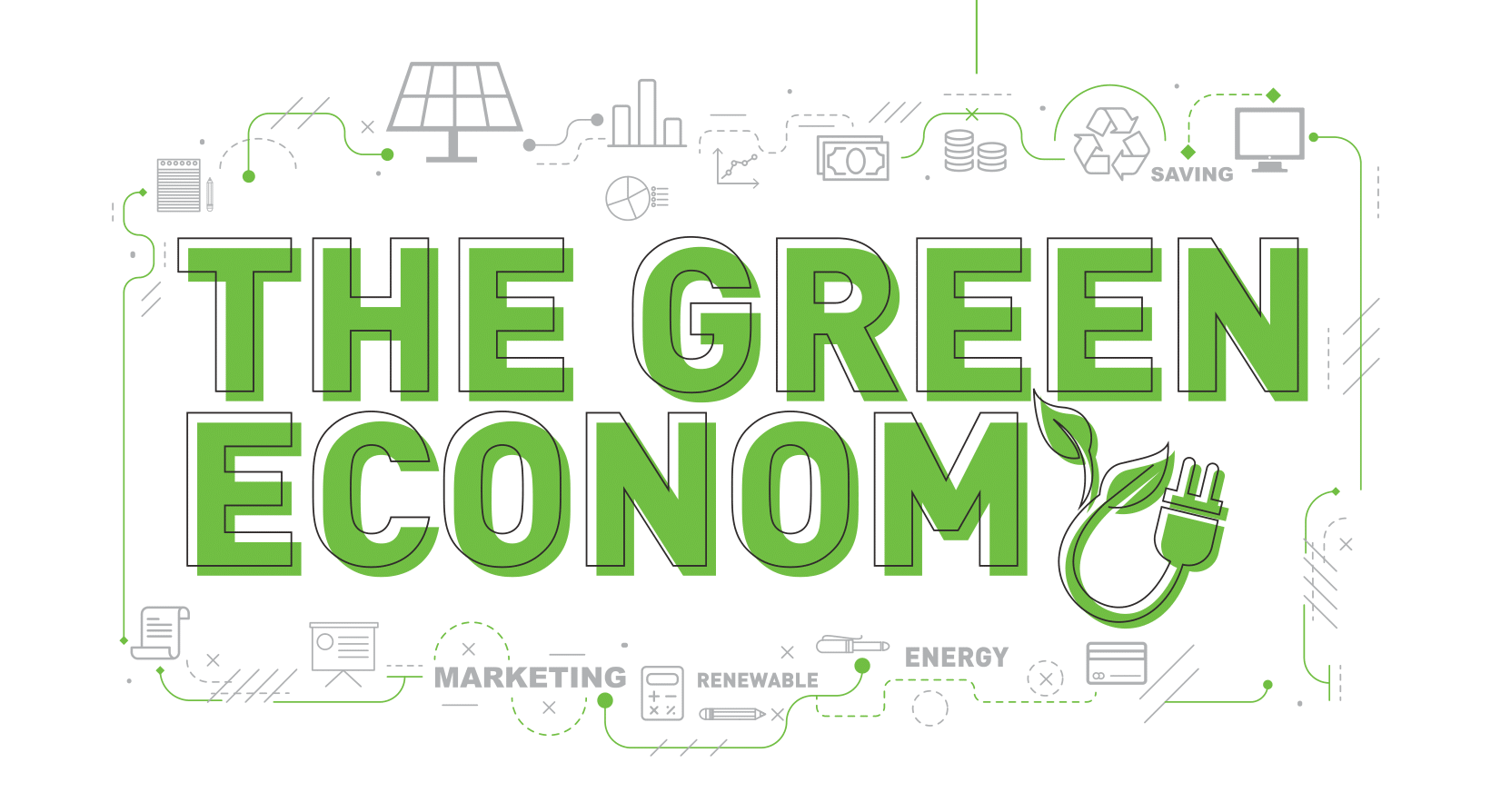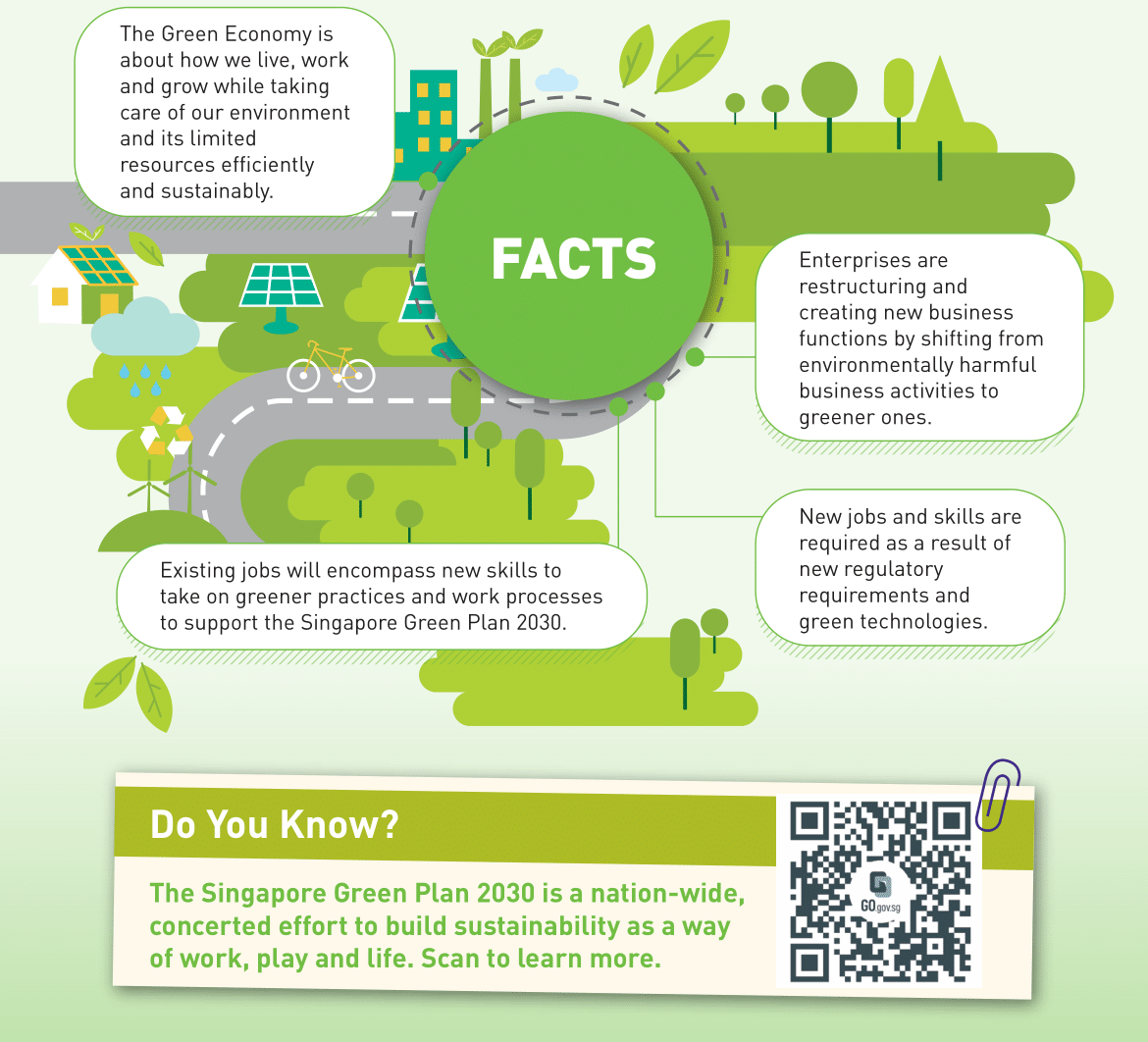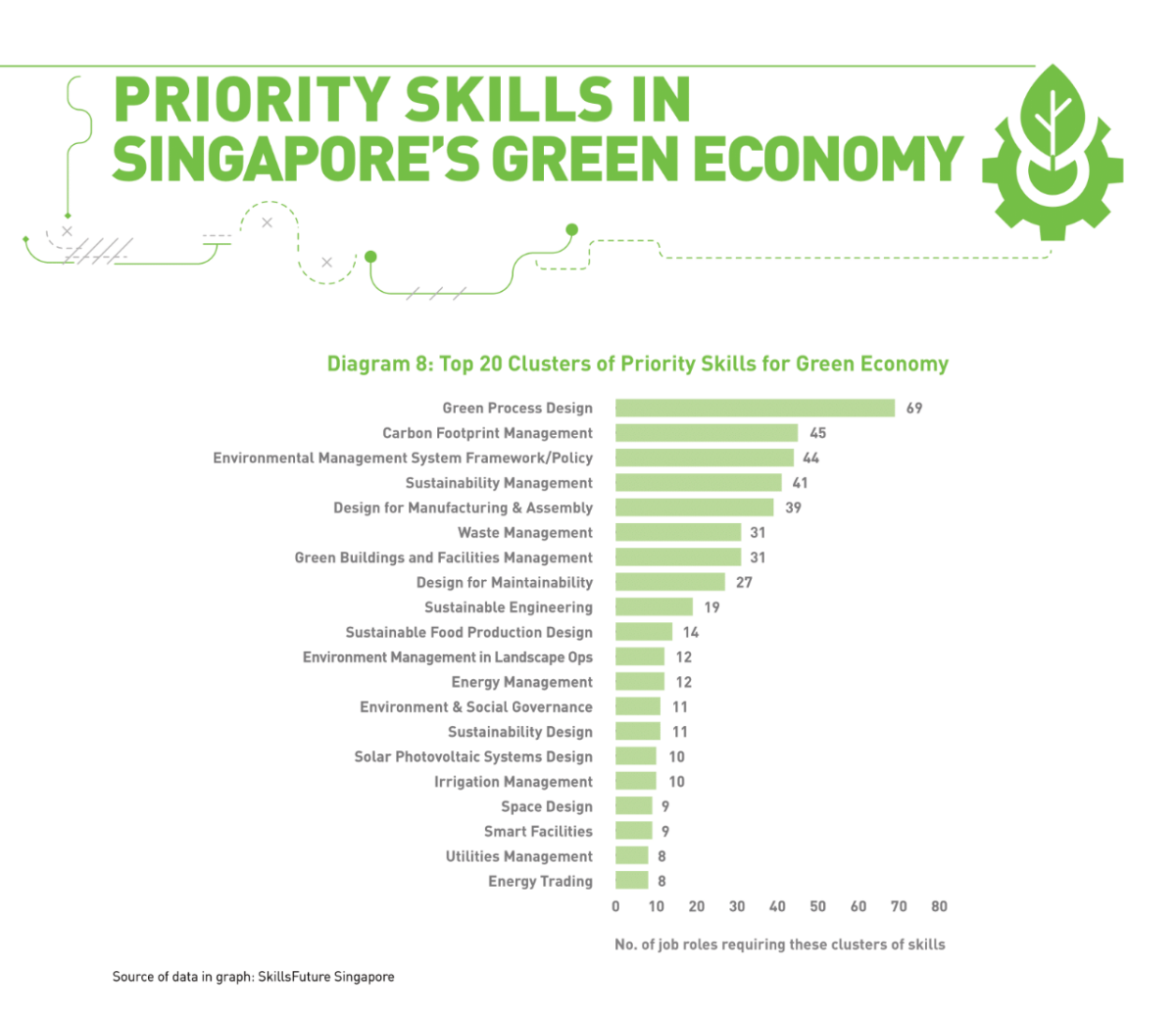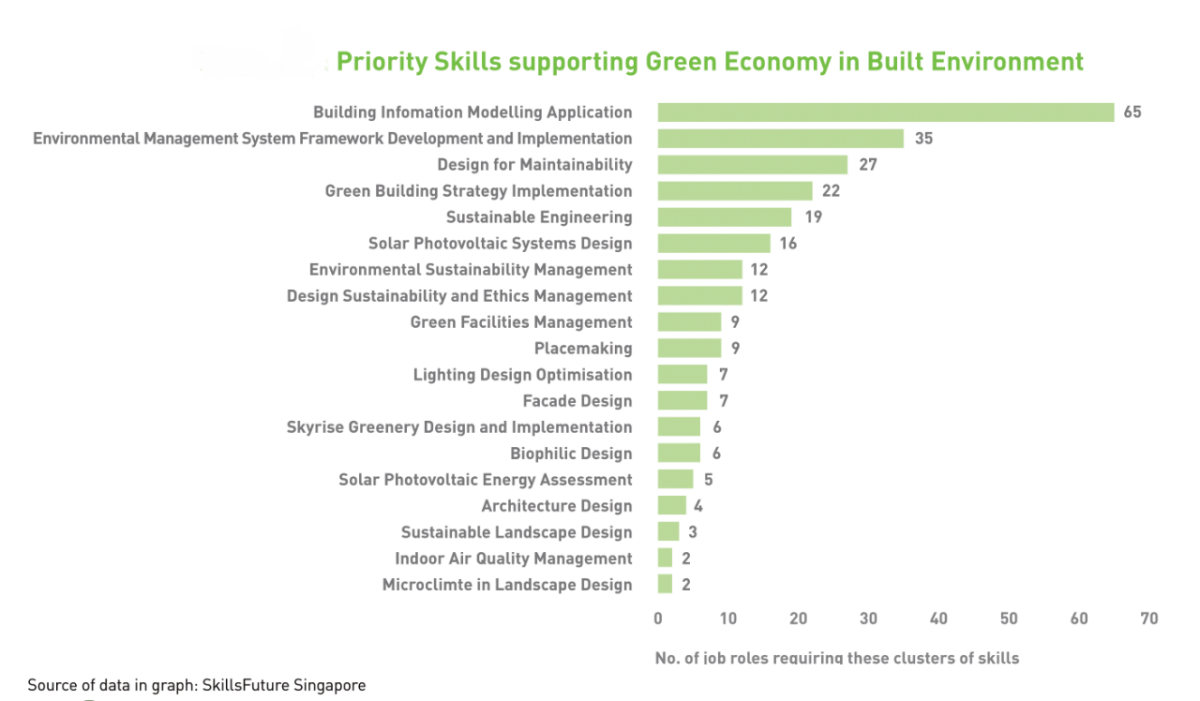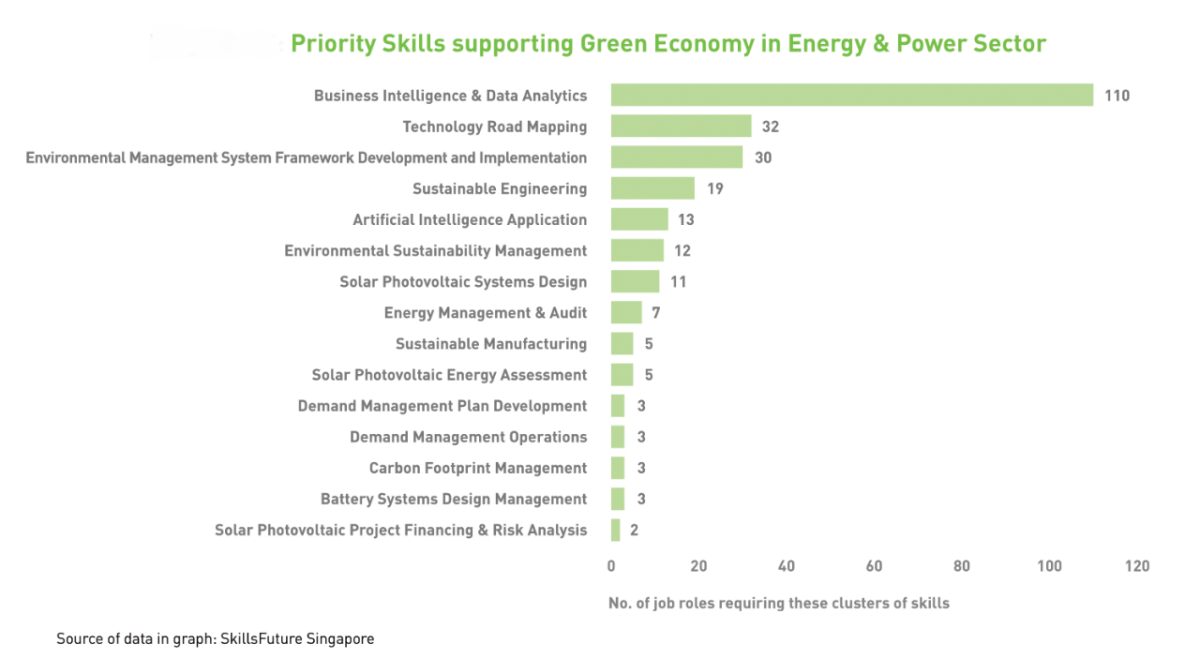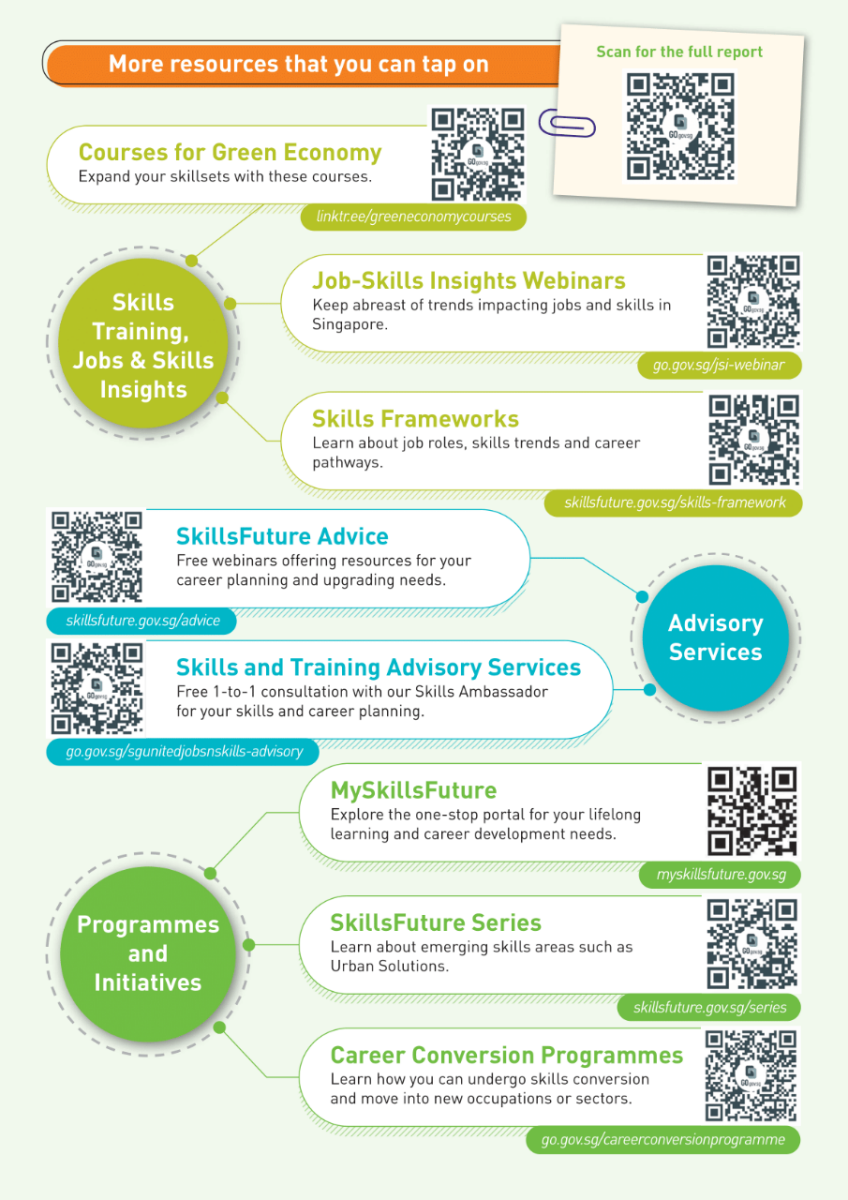Today, these priority skills are required in more than 450 job roles across 17 sectors. These sectors range from manufacturing, trade and connectivity, to information and communication technology, financial services, hospitality and built environment.
These priority skills, given that they are required in a large number of job roles across sectors, are more transferable. Having these skills opens up multiple job opportunities, such as Environment, Health & Safety Manager or Sustainability Manager across sectors.
On the other hand, there are priority skills more relevant to specific sectors. Clusters of these skills include Green Buildings and Facilities Management, Sustainable Food Production Design, Sustainable Engineering and Solar Photovoltaic Systems Design.
The skills in these clusters are mainly required in specific sectors, such as built environment, energy and power, engineering services and agri-tech. These sector-specific skills are critical for one to do well in a job within a sector.
To pick up skills relevant for the Green Economy, explore selected SkillsFuture Credit-eligible courses here.

